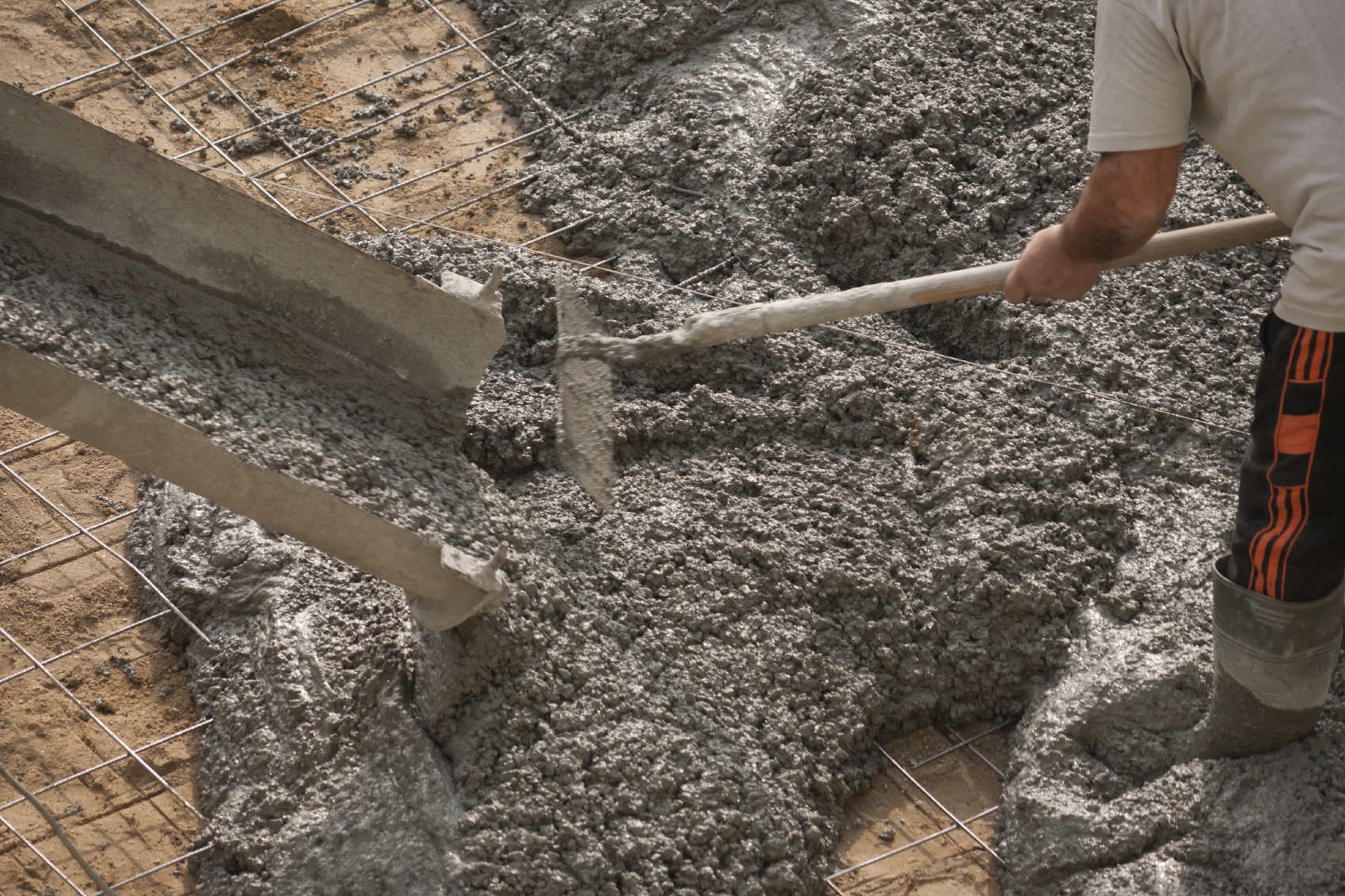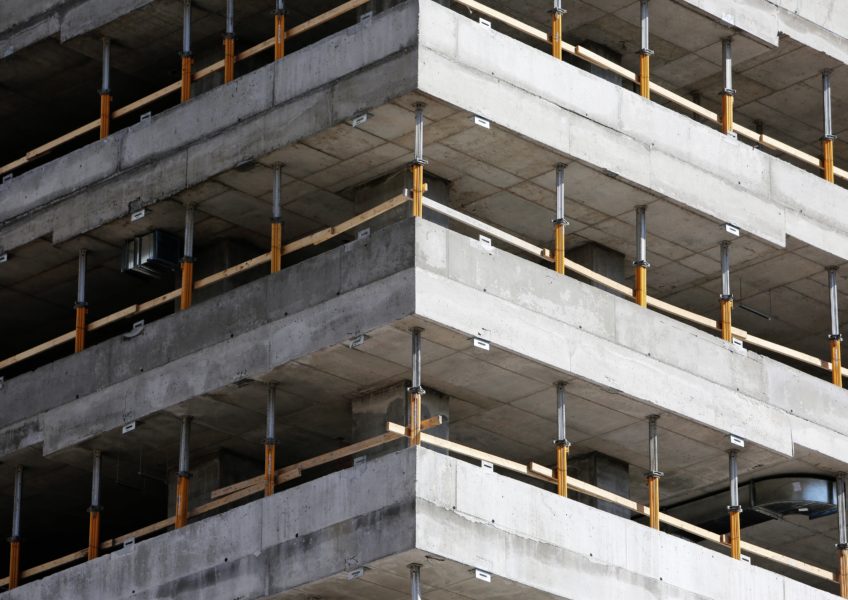How to Improve Your Project’s Lifespan with West Coast General Engineering industrial concrete
How to Improve Your Project’s Lifespan with West Coast General Engineering industrial concrete
Blog Article
The Essential Function of Concrete Foundation in Structural Honesty and Durability
When it pertains to building a building, the foundation is more crucial than you might think. Concrete structures provide unequaled toughness and sturdiness, guaranteeing your framework can endure various ecological difficulties. Without a solid base, you run the risk of prospective issues like shifting or splitting, which can compromise safety and worth. Understanding the nuances of concrete structures can be the secret to maintaining your investment for several years ahead. What should you consider following?
Recognizing the Value of Concrete Foundations
Concrete structures are essential to the overall security of any type of framework, as they supply the vital assistance required to endure numerous lots and ecological problems. When you consider constructing a home or a commercial room, the structure is the very first point you need to take into consideration. It acts as an obstacle versus moisture, securing your building from water damages. A well-placed concrete structure also avoids settling and shifting, which can lead to cracks in wall surfaces and floors. You'll intend to ensure that the foundation is effectively made and strengthened, as this influences the longevity of your structure. In addition, a strong foundation can improve power performance by lowering air leaks. Bear in mind, disregarding the relevance of a concrete foundation can cause costly repair services down the line. Investing in a high quality structure upfront is necessary for the integrity and resilience of your structure.
Benefits of Concrete Foundations for Structural Honesty
While lots of variables add to a building's architectural integrity, concrete foundations supply unmatched toughness and toughness. You'll value that concrete can hold up against severe weather problems, standing up to both moisture and temperature level changes. This strength indicates your structure is less likely to experience breaking or changing gradually, which can jeopardize its safety.Additionally, concrete's integral weight provides a strong base, stopping motion throughout all-natural events like quakes or floodings. When you pick a concrete structure, you're likewise choosing low upkeep; unlike timber, it won't rot or bring in pests, conserving you money and time in repairs.Moreover, concrete's fire resistance uses included safety, ensuring your structure can sustain high temperature levels without substantial damages. Overall, buying a concrete foundation implies you're focusing on the lasting stability and honesty of your structure, making it a smart choice for any construction task.
Common Kinds Of Concrete Foundations
When it concerns developing foundations, recognizing the usual kinds of concrete foundations can aid you make informed choices for your job. One of the most prevalent types consist of slab-on-grade, crawl space, and full cellar foundations.A slab-on-grade foundation is a simple, cost-effective choice, where a thick concrete piece is poured straight on the ground. This kind functions well in cozy environments, as it decreases heat loss.Crawl area foundations raise the home a little above ground, enabling ventilation and access to plumbing and electric systems. This layout can help prevent dampness issues.Full cellar foundations use additional living or storage space while supplying excellent structural support. They require even more excavation and are commonly utilized in chillier climates to avoid frost heave.
Variables to Take Into Consideration When Designing a Concrete Structure

Finest Practices for Setting Up Concrete Foundations
When you're installing a concrete foundation, proper site prep work is crucial to guarantee stability (WCGE commercial concrete). You'll additionally require to understand reinforcement strategies to boost toughness and durability. Do not overlook the healing process, as it plays a basic duty in accomplishing a strong structure.
Website Prep Work Importance
It may seem straightforward, appropriate site prep work is important for guaranteeing a strong and durable concrete structure. Beginning by removing the location of any particles, plant life, or organic product that could compromise the structure's stability. Next off, evaluate the dirt kind and compaction; you may need to dig deep into or add materials to produce a stable base. Degree the ground to assure even weight distribution and stay clear of working out concerns later on. Installing proper drain systems is likewise necessary to stop water buildup, which can damage the foundation gradually. Mark out the foundation's dimensions precisely to direct the putting process. By complying with these actions, you'll establish the phase for a successful concrete foundation that stands the test of time.
Support Techniques Discussed
When the website is effectively prepared, the next step in ensuring a tough concrete structure involves applying reliable support techniques. You ought to start by utilizing steel rebar, which gives tensile stamina and helps protect against cracking. Lay the rebar in a grid pattern, making certain it's raised utilizing spacers to maintain proper coverage. Furthermore, think about utilizing cable mesh for additional support, particularly in locations subject to heavy tons. Don't fail to remember to tie the rebar intersections safely with cable. For larger structures, fiber support can enhance resilience, reducing the risk of shrinkage splits. Constantly follow neighborhood building regulations and guidelines to make certain compliance. By using these reinforcement techniques, you'll substantially improve your structure's stamina and find out here now long life, laying a solid foundation for your framework.
Curing Process Fundamentals
To guarantee your concrete foundation remedies properly, it is necessary to maintain ample dampness and temperature conditions instantly after pouring. Start by covering the surface area with a damp cloth or plastic bed linen to preserve moisture. This maintains the concrete hydrated, stopping cracks and guaranteeing strength. You ought to also check the temperature level; perfect treating conditions are between 50 ° F and 90 ° F. If it's too hot, haze the surface area on a regular basis to protect against fast dissipation. For chilly weather, take into consideration utilizing insulating coverings to keep heat. Go for a treating period of at the very least seven days, as this is crucial for optimal toughness development. By following these best methods, you'll improve your structure's sturdiness and durability, making sure architectural stability for many years ahead.
Maintenance of Concrete Structures for Longevity
To keep your concrete structure strong and long lasting, regular inspections are important. You need to additionally guarantee effective drain options are in place to stop water damage. If you spot any kind of splits, Full Article addressing them immediately will save you from larger problems down the line.

Normal Evaluations and Evaluations
While routine examinations and assessments might appear like a task, they're important for maintaining the stability of your concrete structure. By routinely examining for splits, shifts, or signs of wear, you can capture potential issues before they intensify into costly repair work. Look for any kind of water merging around the structure or uncommon settling, as these can signify underlying issues. It's likewise important to keep track of any changes in your home's framework, like doors that stick or windows that do not open smoothly. Keeping a document of your assessments assists track modifications over time, enabling proactive upkeep. Ultimately, these analyses assure your structure remains steady, supporting the longevity and security of your whole structure. Don't neglect this crucial aspect of homeownership!
Efficient Drainage Solutions
Routine evaluations can reveal problems like drain troubles that may jeopardize your concrete foundation's security. To prevent water buildup, ensure your rain gutters and downspouts straight water far from the foundation. Installing French drains can effectively reroute surface and groundwater, decreasing stress on your structure wall surfaces. Additionally, grading the dirt around your home aids assure that water moves away, as opposed to merging near your foundation.Consider making use of sump pumps in locations prone to flooding, as they actively get rid of excess water. Routinely check for blockages in drain systems and clear them promptly. You'll protect your foundation's honesty and longevity by taking these aggressive actions. Keep in mind, efficient drain options are necessary for keeping a solid, durable concrete structure.
Trigger Fracture Fixes
When you see splits in your More Bonuses concrete foundation, resolving them promptly is important for maintaining its longevity. Little cracks can promptly evolve right into larger problems, compromising the architectural stability of your home. On a regular basis examine your structure for indications of damages, such as straight or vertical splits. If you find any, do not wait-- repair them instantly. You can utilize epoxy shots or concrete patching compounds, which are reliable for securing splits. Constantly follow the maker's guidelines and think about speaking with a professional for considerable damages. Bear in mind, prompt repairs not just improve your structure's sturdiness but additionally save you cash over time by preventing extra substantial repair work down the line. Stay aggressive, and your foundation will certainly remain strong and secure.
Resolving Common Problems With Concrete Structures
Concrete structures can deal with different concerns gradually, making it important to determine and resolve them immediately. One of one of the most usual problems is fracturing, which can take place because of temperature changes or working out dirt. If you discover fractures, it's important to evaluate their size and deepness; little splits can frequently be secured, while bigger ones might need expert evaluation.Water breach is one more major issue. Excess wetness can bring about mold development and structural degeneration. Warranty appropriate drainage around your foundation to mitigate this danger. Additionally, seek signs of changing or bowing wall surfaces, as this can suggest underlying concerns with your foundation's stability.Regular inspections are fundamental to catch these troubles early. If you spot any kind of concerning indications, don't hesitate to speak with a structure expert. By staying positive, you can maintain the honesty and long life of your concrete foundation, ensuring your home stays secure and protected.
Frequently Asked Inquiries
Just How Does Soil Type Affect Concrete Foundation Performance?
Soil type substantially affects concrete foundation efficiency. If you've got extensive clay, as an example, it can create shifting and splitting. Sandy soil could cause resolving. Comprehending your dirt assists assure a secure foundation.
Can Concrete Foundations Be Fixed if Damaged?
Yes, you can repair broken concrete foundations. Depending on the level of the damage, techniques like epoxy injection or slab jacking can restore security. It's best to seek advice from a professional for efficient remedies.
What Is the Normal Life-span of a Concrete Structure?
A concrete foundation typically lasts 30 to 100 years, relying on factors like soil problems, environment, and maintenance. You'll desire to watch on it to guarantee it stays healthy throughout its life-span.
Exist Choice Products to Concrete for Foundations?
Yes, there are alternatives to concrete for structures, like steel, hardwood, or perhaps recycled products. Each option has unique benefits and disadvantages, so you need to consider your project's specific needs when picking the ideal material.
Just How Does Environment Effect Concrete Structure Sturdiness?
Climate considerably affects concrete foundation sturdiness (West Coast General Engineering commercial concrete). Extreme temperature levels, dampness, and freeze-thaw cycles can damage the material, causing cracks and architectural concerns. You should think about neighborhood environment conditions when planning your foundation to ensure long-lasting performance
Report this page